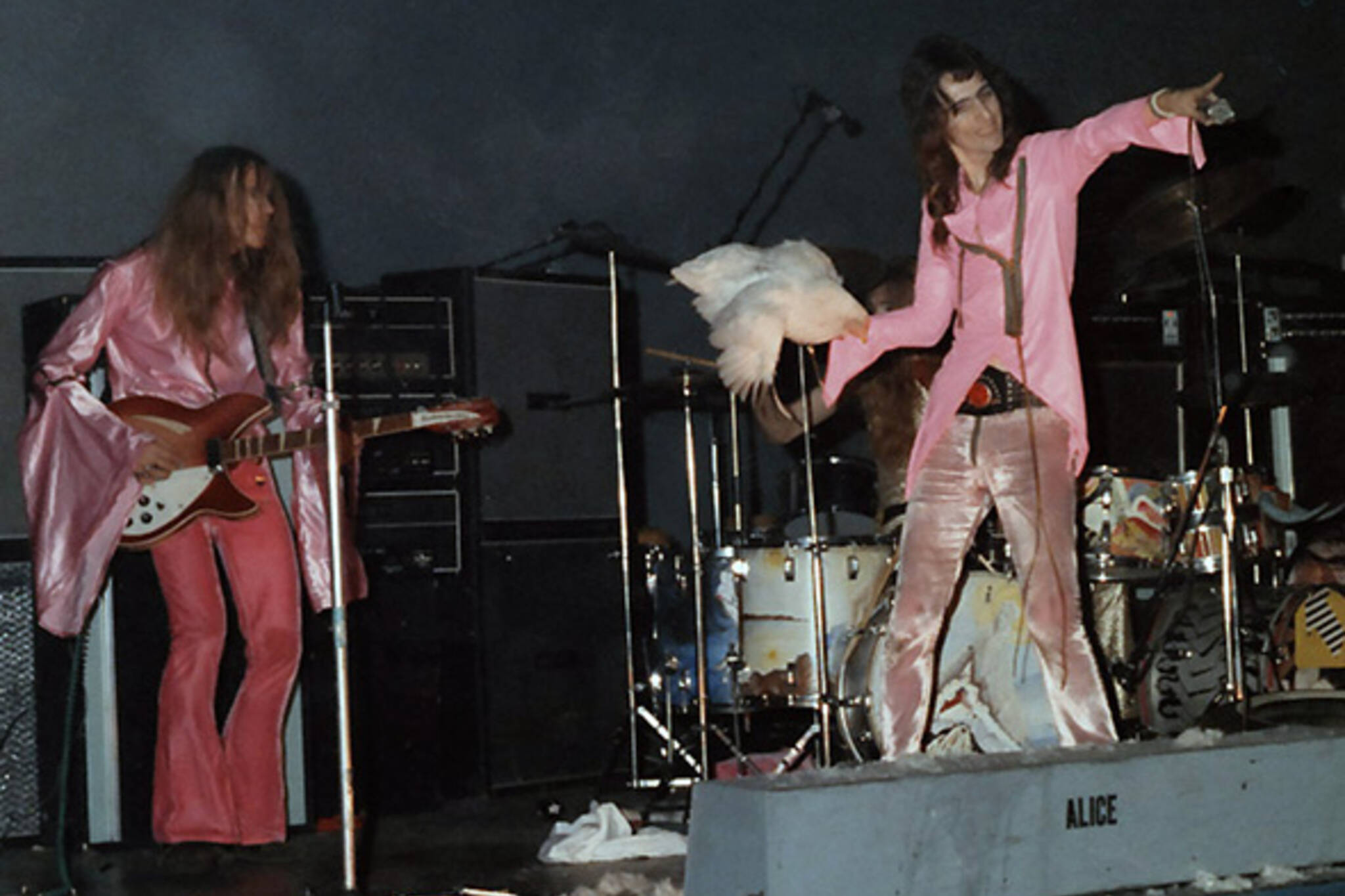
10 quirky things to know about the Toronto music scene
In recent years, more and more aspects of Toronto's music history has begun to be properly
documented, from the vibrant punk scene of the 70s, to the early rock'n'roll clubs on Yonge street, and even the indie rock community of the 90s. In a city that's not always great at preserving our heritage, this has led to some of the quirkier aspects of our music history being uncovered, revealing an often hidden underbelly of wild nights and rowdy bars.
The Toronto concert that broke up the Beatles
The 1969 Rock'N'Roll Revival concert at Varsity Stadium was remarkable for a variety of reasons. Some argue that it was one of the earliest examples of the 1950s nostalgia that continues to permeate pop culture, bringing together the big stars of early rock'n'roll, like Bo Diddley, Little Richard, Gene Vincent, Chuck Berry, and Jerry Lee Lewis alongside some of the biggest names of the hippy era: John Lennon, Eric Clapton, and the Doors.
It was also the birthplace of the legend of Alice Cooper biting the head off a live chicken on stage (supposedly he merely tossed it to the crowd thinking it would fly, but decided to let the myth flourish on the advice of Frank Zappa). But perhaps most historically significant, Ringo Starr later said that it may also have been the moment that John Lennon realized he no longer wanted to perform with the Beatles, and instead decided to follow the new path he began that day with the divisive first public performance of the Plastic Ono Band.
Cabbagetown, the mob, and Billie Holiday
For 39 years the Winchester Hotel in Cabbagetown remained empty and in rough shape, until the second floor was revived in 2004 as the Laurentian Room. Now known as the Winchester Kitchen and Bar, the room still boasts many of the original fixtures and bar from when it was notorious gangster Al Capone's favourite Toronto joint to unwind at during the prohibition era, when he spent a fair amount of time in town building his bootlegging empire. In that era it featured regular burlesque performances, but also hosted shows by legendary jazz singer Billie Holiday
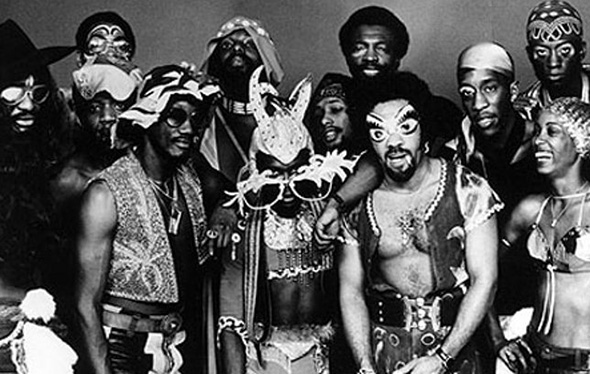
Funkadelic were once based in Toronto
George Clinton and his Funkadelic band briefly relocated to Toronto in the early 70s, and recorded the album America Eats Its Young here. While not one of their most well known albums, it was an important transitional period, and marked the beginning of Bootsy Collins' long relationship with the P-Funk family. They also greatly increased the amount of black leather in their wardrobe, thanks to the affordable local shopping.
Bob Dylan's Toronto connections, real and mythical
Apparently the rumours of Bob Dylan stopping by the Free Times Cafe aren't accurate (supposedly it was actually Willie Nelson that stopped by in the early 90s), but Clinton's Tavern claims that Dylan did attend their first concert in 1980, which featured Toronto blues legend Jeff Healey. A more verified story is the time he showed up at Friar's Tavern to check out Levon and the Hawks, who he would later hire to be his backing band, and who would later become the Band.
Dylan also discovered enigmatic early-Americana revivalist Leon Redbone at the Mariposa Folk Festival in the early 70s, and helped launch his career by singing his praise to Rolling Stone magazine. So far we've seen no credible confirmation of the rumour that Dylan hid out in the basement of a Toronto guitar store during his post-motorcycle accident period (perhaps our readers know the scoop).
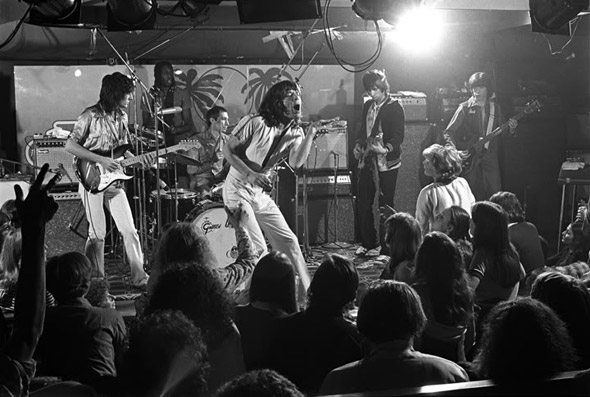
Toronto saved Keith Richards
The Stones have had a long close relationship with Toronto. They've often rehearsed here before tours, and have been known to randomly show up at local bars to blow off steam after practices. They've played many intimate club shows here, including their infamous 1977 surprise appearance at the El Mocambo, as well as shows at the Horseshoe, RPM, the Palais Royale, and the Phoenix. That 1977 Toronto visit is important for more than just the political scandal of Margaret Trudeau cavorting with the band and the live recording they did at the El Mo though.
While Keith Richards ultimately got off easy after being caught by police with a large quantity of heroin, cocaine, and weed, the incident was the turning point for his battle with opiate addiction, and spurred him to finally seek treatment for what was becoming a life-threatening habit.
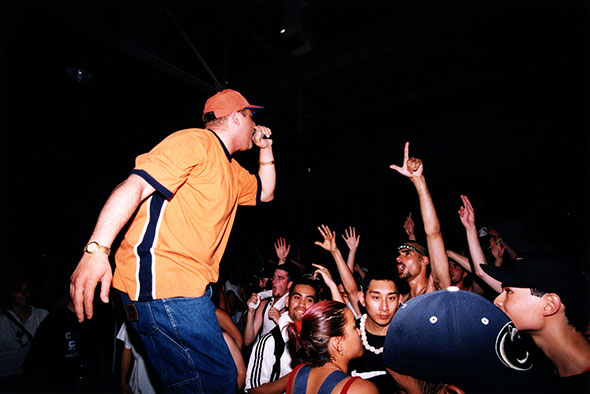
Toronto has long been a secret dance music mecca
This isn't an easy town to open a nightclub, but the busy summer festival season proves that there's still a huge audience for dance music in Toronto, possibly as big as back in the 90s, when we boasted one of the largest rave scenes in North America, and arguably the biggest drum'n'bass scene outside of the UK. That history with underground dance music even extends to the 80s, when the legendary afterhours club Twilight Zone was the first international gig for house music godfather Frankie Knuckles.
The Liberal Party closed down Toronto's first DIY punk venue
Although it only existed for less than a year in 1977, the infamous Crash 'N' Burn club was a vital part of Toronto's early punk scene. Originally the basement at Duncan and Queen was the practice space for the Diodes, but the band decided to turn it into a venue that summer. Too bad the noise and the rowdy behaviour led to a steady stream of complaints from the Liberal Party of Ontario, which resulted in the space getting shut down just as it was starting to build steam.
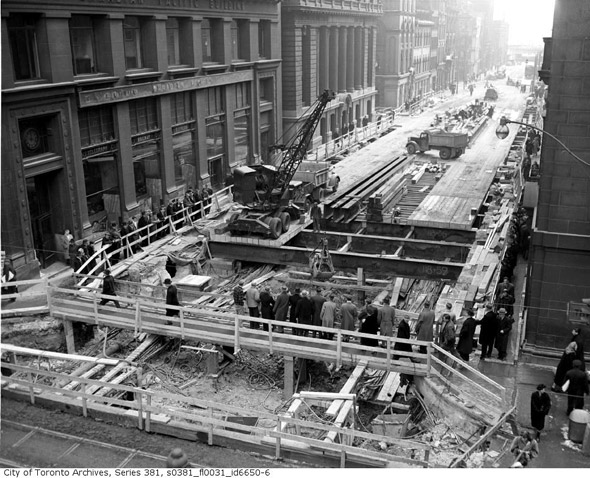
Musicians have been complaining about the same things since 1950
You think Toronto traffic is bad now? In 1950, Yonge street was being torn up to build the subway, and local big band swing artist Ozzie Williams commemorated the chaos the construction caused with the Toronto Subway Song. It was the b-side to the single Sunday In Toronto, which criticized the puritan "blue laws" that forbid everything from bars to shopping on Sundays. In comparison, Toronto's current anti-fun laws seem practically hedonistic.
One of Toronto's biggest R&B stars of the 60s was openly gay
While originally American, Jackie Shane made his name on the bustling Yonge street club circuit. Much more flamboyant than Little Richard, Shane wore full makeup, occasionally a gown, and many assumed he was a woman on hearing his singles. Despite how much he transgressed the taboos of time, he achieved a fair amount of local success, before disappearing in the late 60s.
Toronto's reggae scene was already hot in the 60s
A wave of Jamaican immigrants in the 60s brought reggae music to Toronto, and the musicians who moved here also integrated themselves into the city's rhythm & blues scene, leading to a unique cross-pollination of cultures. Legendary Studio One keyboard player Jackie Mittoo relocated to Toronto in 1969, and fellow Studio One alumni Leroy Sibbles also moved here in 1973. Recently city council recognized this heritage by renaming a laneway south of Eglinton Reggae Lane.
Latest Videos
Latest Videos
Join the conversation Load comments







